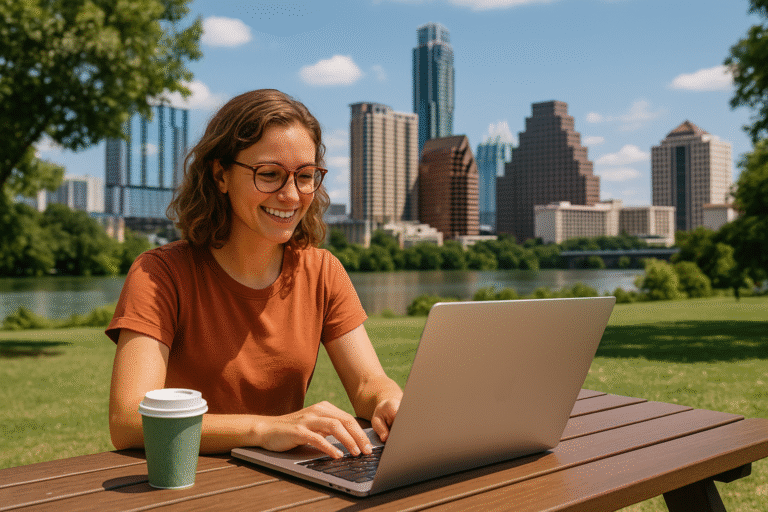Austin’s vibrant tech and creative community took center stage as the city hosted the “NomadCon” conference, celebrating the growing movement of digital nomads and remote workers. With Austin rapidly becoming a hotspot for freelancers, entrepreneurs, and tech professionals working from anywhere, the event attracted hundreds of attendees from across the globe to discuss the future of remote work and its impact on local communities.
The conference was organized by Digital Nomad Collective, an international organization that advocates for the rights and needs of remote workers. The event featured keynote speakers, panel discussions, and networking opportunities aimed at exploring the lifestyle, challenges, and opportunities of being a digital nomad in the 21st century. Keynote speakers included renowned remote work expert, Dr. Karen Johnson, a sociologist who specializes in the effects of digital work on global migration patterns. “Digital nomadism isn’t just a trend; it’s a global shift in how people approach work and lifestyle,” Dr. Johnson explained during her opening remarks.
Austin, known for its thriving tech scene, vibrant music culture, and laid-back atmosphere, has become a key destination for remote workers seeking a balance between career flexibility and a high quality of life. Local officials have embraced this shift, with Mayor Steve Adler attending the conference to discuss how the city is adapting to the influx of remote workers. “Austin has always been a hub for innovation, and we’re now seeing a new wave of creative professionals who are choosing to call our city home—without being tied to a traditional office,” Adler said in his address.
The rise of digital nomadism has created a number of economic and cultural shifts in cities like Austin. Co-working spaces have become a central part of the city’s landscape, with places like WeWork and local start-ups offering flexible workspaces designed for the mobile worker. One such space, The Nomad Hub, was highlighted at the conference as a successful model for remote collaboration. Founder Jessica Carter shared her story of how her co-working space became a hub for like-minded professionals who wanted to maintain their independence while staying connected to a supportive community.
While remote work offers flexibility and autonomy, it also presents unique challenges, including isolation, burnout, and the lack of traditional workplace structures. To address these issues, a series of workshops were held on topics such as mental health for remote workers, managing work-life balance, and fostering virtual community engagement. Experts like Dr. Andrew Hayes, a clinical psychologist who works with remote teams, emphasized the importance of maintaining social connections despite physical distance. “Remote workers often face the challenge of building relationships without the benefit of face-to-face interactions,” Dr. Hayes explained. “That’s why establishing virtual communities and making time for in-person meetups is critical.”
For many, the conference was an opportunity to explore the future of work in an era defined by technology and flexibility. “Digital nomadism has changed the way I live my life,” said Sarah Mitchell, a freelance writer from New York who relocated to Austin last year. “It’s not just about working remotely—it’s about living where I want to live and creating a lifestyle that aligns with my values and interests.”
As the event wrapped up, it was clear that the digital nomad movement is far from over. In fact, it is gaining momentum, and Austin has firmly established itself as one of the top cities in the world for those seeking a blend of work and lifestyle freedom. The shift toward remote work is reshaping not just how we work but where we choose to work and live, and Austin is at the forefront of this exciting cultural evolution.



